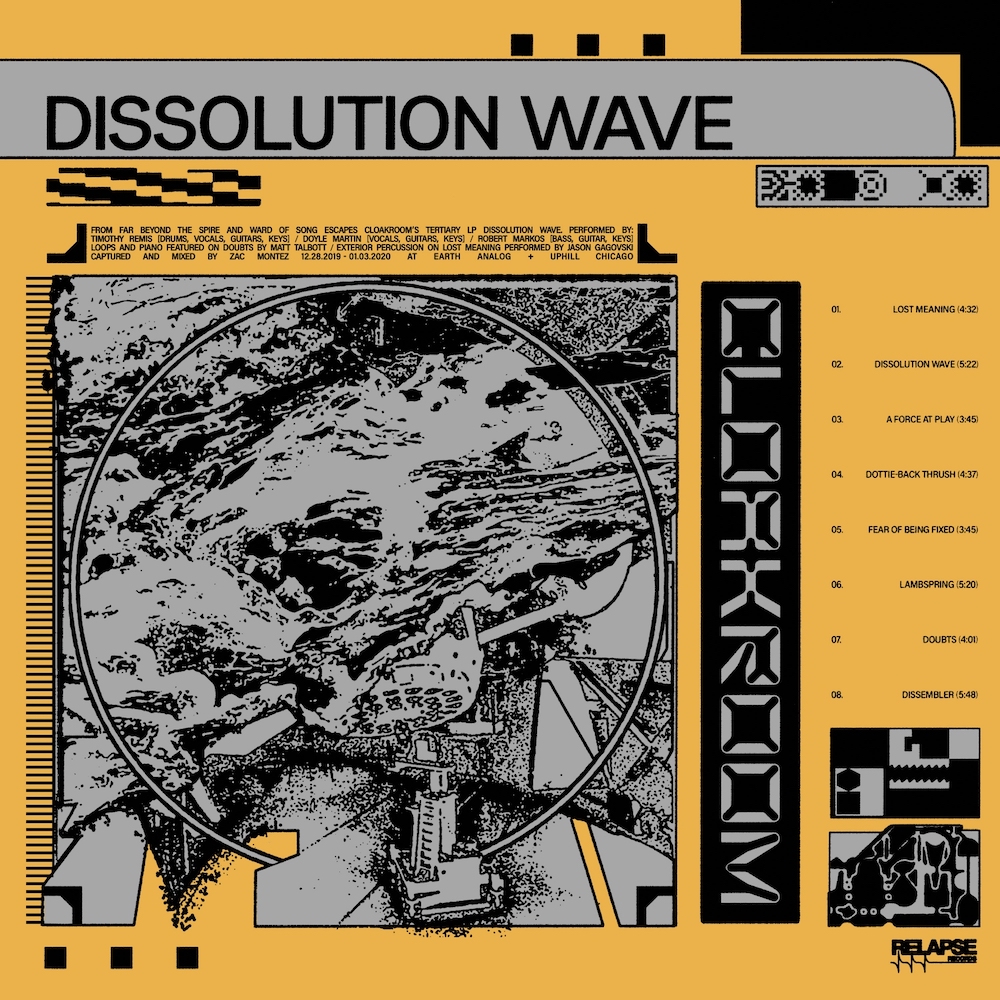To try and mold a concept album within the shoegaze genre must be a rather thankless task. Universally known for its ‘substance = style’ approach, shoegaze usually profits from keeping its lyrics and intentions as hazy as possible. The perfume like, oneiric nature it strives for is meant to remain ambiguous and hazy, formless and alien – at times even to its composers. There’s a wonderful anecdote about one of Slowdive’s songs on Souvlaki, about which Neil Halstead, who by then had broken up with Rachel Goswell, says he still doesn’t know the lyrics she sings while he harmonizes with her – the contents are likely too personal for him to face up front. Those songs can mean anything you want them to, as they modulate to reproduce individual memories.
Still, when the genre actually makes a concept its aesthetic, it can go quite far. Candy Claws’ Ceres & Calypso in the Deep Time is a good example: it uses poems to generate a loose narrative of a little girl and its seal-like snow-creature companion as they time travel through the Mesozoic era. Pretty spaced out, but its idyllic beauty fits the flowery lyricism and awe-inducing descriptions of our planet’s ancient flora and fauna. The music merely provides a bridge to Ceres and Calypso’s adventures, so the concept remains impossible, and because of that, it blossoms.
Cloakroom aim for a similarly impressive feat, as their third album Dissolution Wave sports one of the headiest concepts of recent memory – a tale Liturgy would be proud of! According to the available information, it is somewhat of a sci-fi space western, inspired by Sanskrit and the coronavirus crisis. The tale includes the destruction of all human art, and a future authority that judges all incoming new songs by a system representing the karmic wheel.
That’s a lot to swallow, and honestly, it’s hard to see the concept evolve over the course of the album’s eight songs. Cosmic imagery appears now and again, and the overarching feeling of dread and unimaginable loss characterize the writing, but there’s little western and maybe even less spiritualism here. For the most part, Dissolution Wave is a collage of grunge, alt rock, a little bit of emo and heavier shoegaze elements, owing much to modern American heritage. It has more in common with The Appleseed Cast’s lofty ambitions on Peregrine than the British heaviness of Swervedriver’s Mezcal Head.
The album starts off strong, presenting its three highlights on the forefront. “Lost Meaning” and “A Force at Play” are charismatic slacker hymns, the opener indulging in heavy stoner riffs and mighty echoes, while the latter is the most British sounding track on the album, with its sugary synth notes and singalong melody. The slower title track, which is sandwiched between them, is beautifully seductive and accentuated, indulging in the sound of every metallic note that is played. The way the bass line contrasts with the polarized guitars around the two minute mark (one a deep grunge sound, the other a fragile jangle) is especially brilliant. Concluding the first half, “Dottie-back Thrush” is another very good exercise in loud/quite dichotomies, almost verging on post-rock in moments.
Sadly, things dissolve a little after this. The B-Side is not quite as nuanced in its sonic progression, with “Fear of Being Fixed” a slowed-down cousin of The Smashing Pumpkins’ “Where Boys Fear to Tread”, while “Lambspring” is a little too concerned with its own prettiness. Both are very nice on their own, fitting on a mixtape neatly, but in the context set by the previous songs, they fall off a little, with less attention to song progression and the pre-established palette determining their bodies.
They’re followed by “Doubts”, a country-rock ballad that could fit on a Band of Horses or My Morning Jacket album. While it most closely ties to the space western concept aesthetically, it sits a little awkwardly on here as the only song that breaks free from Dissolution Wave’s overall style. It’s a strangely minor song, pretty but announcing itself as a filler, lacking the punch of a “Lose my Breath” or “Dagger”.
Cloakroom somewhat save the tail-end of the album with “Dissembler”, a slightly ominous stoner rock song that could easily fit among Deftones’ very best songs. With its tempo jumps, varied guitar tones and ending twist, it’s composed with great care and passionately performed, slowly fading out into the stars.
Dissolution Wave ends up a strange album to classify. It’s a step forward from its predecessor Time Well in terms of production of imagination, but it feels more repetitive, ultimately resulting in a homogenous mass where individuality would have both served the songs’ blistering and sparkling guitars and likely supported the thematic density of its conceptual backbone. The whole is not as majestic as its parts, including the often very evocative lyrics. But on the record there is little left of those initial spiritual ideas itself, and the creative drive of the opening salvo won’t carry onto the second half. And that is a shame, as the album’s individual highs suggest greatness.

